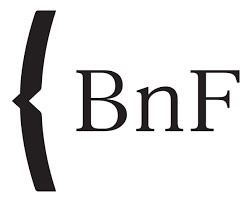Art et Consommation
-
Réalisé par Philippe Simon • Écrit par Stéphane Druais, Philippe Simon, François Le Bayon, Chantal Soyer
-
France • 1997 • 26 minutes • Couleur
- Réalisation :
Philippe Simon - Écriture :
Philippe Simon, Stéphane Druais, François Le Bayon, Chantal Soyer - Musique originale :
Mathias Duplessy
- Production (structure) :
Lieurac Productions - Coproduction :
Grand Canal - Diffuseur :
La Cinquième - Participation :
CNC, DAP - Délégation aux Arts Plastiques, DDF - Délégation au Développement et aux Formations - Ayant droit :
Lieurac Productions
- N° ISAN :
ISAN 0000-0005-15DA-0000-0-0000-0000-3
Résumé
À la fin des années 50, voitures, machines à laver, télévisions, etc., débarquent dans tous les foyers. La production industrielle empile les objets dans les supermarchés. Les artistes du Nouveau Réalisme et ceux du Pop art célèbrent cette culture de la consommation. En 1960, César invente la "compression" résultant d'une voiture broyée par une presse ; il lui confère le statut d'œuvre d'art. En 1959, Arman expose ses "Poubelles", une accumulation de détritus placés dans des boîtes aux parois vitrées. Ces "Accumulations" d'objets mettent en scène sur un mode ironique les relations que notre société d'abondance entretient avec le monde industriel. Claes Oldenburg transpose des objets usuels dans des matériaux inhabituels : il donne à voir et à toucher un quotidien devenu fantastique. Ces dernières années, le rêve d'une prospérité pour tous s'est effondré. Dans ses "Tableaux vivants", Gloria Friedmann rend compte des conséquences d'une industrialisation forcenée : chômage, pollution... (Annick Spay
In the late 1950s, cars, washing machines, television sets, arrived in every home. Industrial production piled the objects up in supermarkets. The artists of New Realism and Pop Art celebrated this consumer culture. In 1960, César invented "compression" resulting from a car crushed in a press ; he conferred on it the status of work of art. In 1959, Arman exhibited his "Poubelles", an accumulation of garbage placed in boxes with glass sides. These "Accumulations" of objects present in an ironic way the relations of our affluent society with the industrial world. Claes Oldenburg transposes usual objects into unusual materials : he gives us daily things that have become fantastic to see and to touch. In the last few years, the dream of prosperity for everyone has collapsed. In her "Tableaux vivants", Gloria Friedmann presents the consequences of industrialisation gone mad : unemployment, pollution... (Annick Spay)
Collection
Mot(s)-clé(s) thématique(s)
Comment avoir accès au film ?
-
Édition DVD
- Il n'existe pas d'édition DVD à notre connaissance
-
Accès VOD
- Il n'existe pas d'accès en VOD à notre connaissance
- Diffusion non commerciale / Consultation
